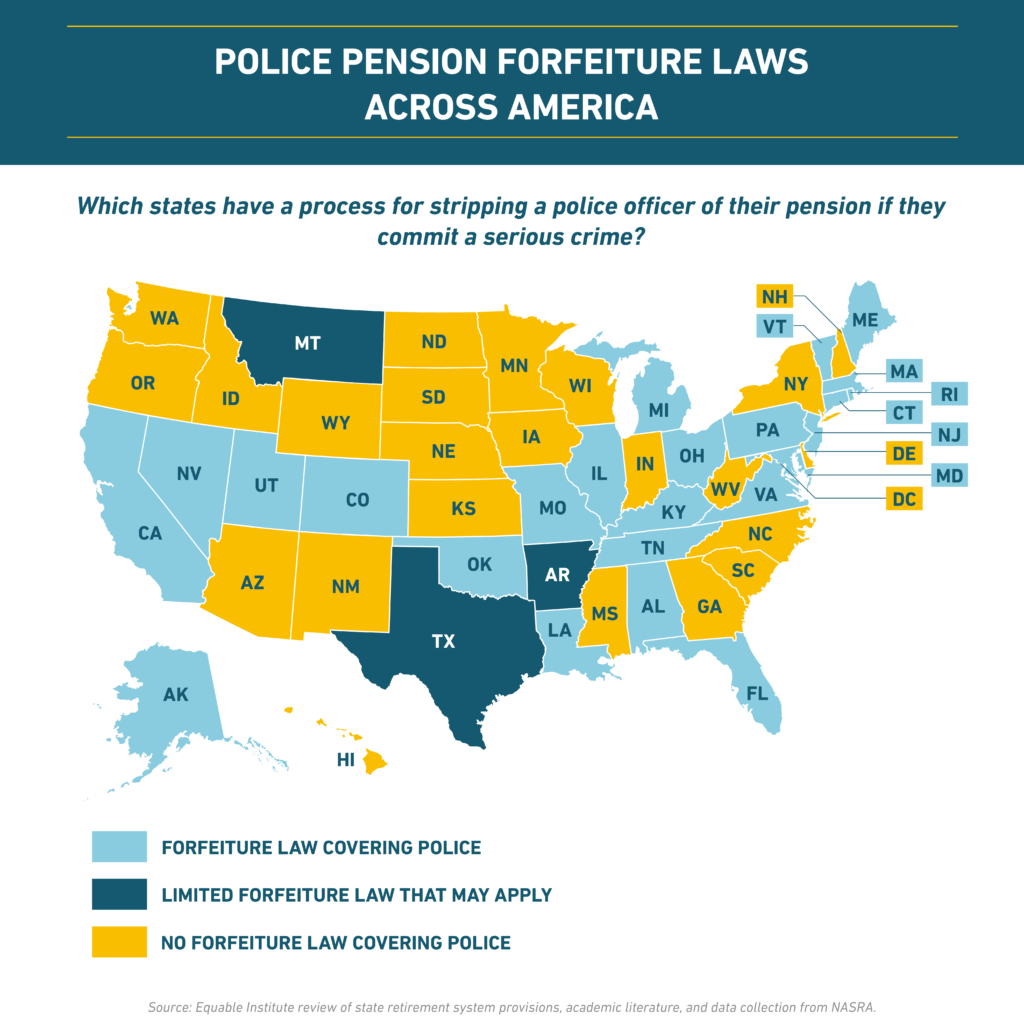Most states have some kind of “pension forfeiture” laws on the books. If a police officer commits a crime in the course of performing their duties, they may be at risk of losing their pension.
These laws usually are related to public employees that are either convicted of, or plead no contest to, a felony or unlawful killing.[1] Only 23 of the state laws cover law enforcement employees, such as police officers.[2] There are three states that might cover police, depending on how they’re interpreted, and 24 states without laws covering police.

The details about what kind of crimes will lead to pension being stripped from a police officer vary from state to state. Usually the forfeiture law is limited to on-duty offenses, other times it is not. A few states allow for pension benefit reductions rather than taking the whole pension away. And the process for determining whether a pension is to be forfeited isn’t always the same: some states automatically strip pensions from individuals under these circumstances, other states have judges order the pension taken away or require pension boards to hold proceeding to consider taking the right to a pension away.
For complete details, please review the relevant statutes in your state.
If you are interested in learning more about the benefits offered to public safety officers in your state, check out the Retirement Security Report.
Disclaimer: This article and infographic is not intended as legal advice or formal legal analysis.
__________
Notes:
[1] There are seven states with pension forfeiture laws that do not apply to police officers, including: Delaware and Minnesota (laws only applies to surviving beneficiaries who commit an unlawful killing, not active members); Indiana and South Carolina (laws allows for pension benefits to be used as restitution for theft or embezzlement of public property, but does not otherwise require forfeiture for committing a crime); New Mexico and North Carolina (laws allow for pension forfeiture of elected official benefits only); New York (a 2018 law only allows pension forfeiture for elected officials, judges, and gubernatorial appointees)
[2] There are three states with laws that could be interpreted as covering police officers in addition to the 24 listed on the map above. Texas has a pension forfeiture law that only applies to the state Employees’ Retirement System, which does include some state police officers, but does not cover the vast majority of police around the state. Arkansas and Montana have laws that strip the pension of a public employee if they commit an unlawful killing, but only if the person they kill is another public employee.

